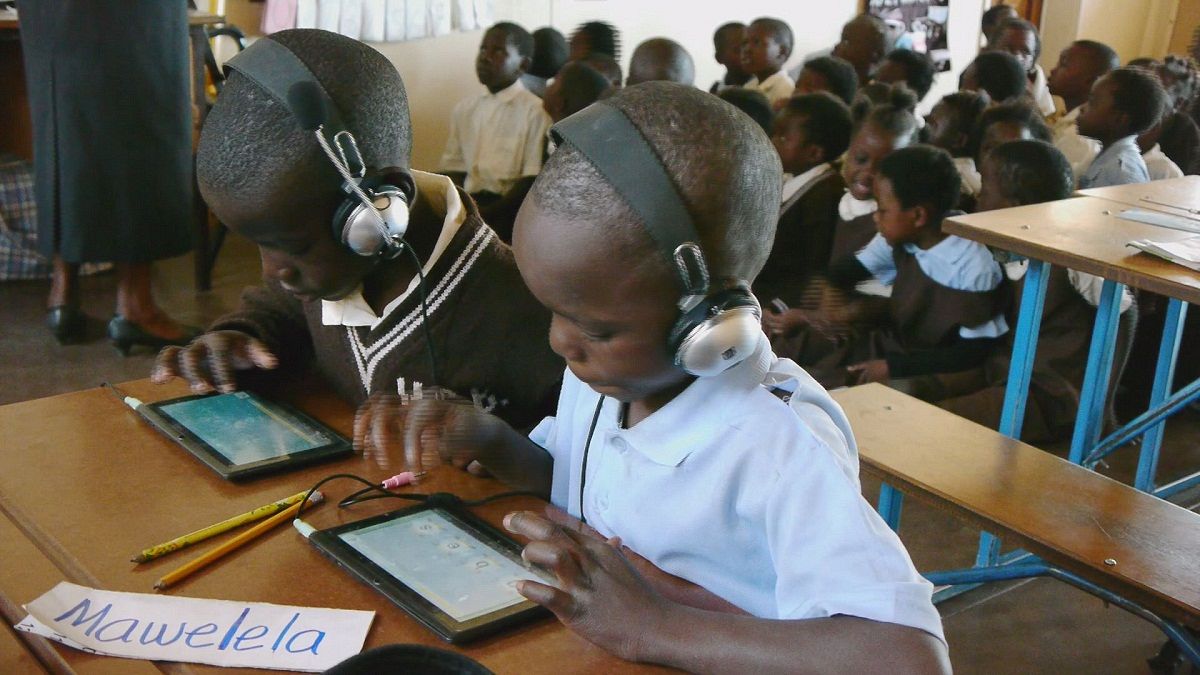What are serious games and can they make a difference to educational outcomes? Can game-based learning be used to teach every subject? All of these questions are answered in the latest edition of Learning World.
Innovation in France
Grenoble Ecole de Management is a prestigious French business school that has become an international reference point in “serious games”. Even experts from the United States have travelled to France to take a look at their innovations.
Professor Hélène Michel has studied serious games for the past ten years: “A serious game” is a game that has been created with a serious purpose in mind. There is an educational or professional goal. Serious games are useful when you want to convey a complicated message and you don’t want to spend time on it.”
GEM has 7000 students from 115 countries studying in nine different campuses in France and abroad. But do management studies need to include “serious games”? The dean believes they are necessary.
One of the creators of “serious games” is Laure Dousset. She leads a team of six – two game designers, two game artists, a game master and herself- .
“Serious games are very common in training programmes,” says Dousset.
More than 200 business people have already visited GEM’s serious game platform. One of these games, Nanorider, is used regularly by experts in micro and nano technology.
Grenoble Ecole de Management doesn’t sell its “serious games” to businesses but does sell the training associated with them. Creating a “serious game” from the scratch is also a “serious” affair. According to Hélène Michel, a boarding game costs around 30.000 euros and between 150.000 and 200.000 euros for a virtual one.
Learning how to govern in Thailand
Questions about democracy in Thailand have been hitting the headlines recently. Learning World explores how one project aims to help students understand governance.
Political changes have made many to have doubts about what democracy is all about.
At a school near Bangkok a board game called Sim Democracy was launched with the ambitious aim of teaching children how to run a government in a democratic society.
“Democracy is not something you can only learn from books. It’s like a lifestyle, they have to experience it. They can understand it so I started to have an idea of simulating a country under a democratic system and let the students learn to experience it,” explains the game’s creator, Ruttikorn Vuttikorn.
The Friedrich Naumann Foundation has teamed up with the Election Commission of Thailand to introduce the Sim Democracy game into educational workshops at over 200 high-schools and universities across the country.
In the game, the board represents a country and is divided into four sectors – hospitals, schools, forests and police stations, which represent public health, education, environment and security.
To start the game, each of four teams runs a brief election campaign to decide who will govern.
After playing the game, students examine their performance. The more they play, the greater the understanding they have of the game.
“Sim Democracy” continuously receives interest from educators in the region. It is now adapted for universities in Malaysia and South Asia.
Zambian children play with ‘graphogames’
In official rankings, Zambia has often scored badly when it comes to literacy. The reasons for this include over-crowding in classrooms and a lack of individual attention. But now, a pilot video game developed in Finland is offering a new way to improve results.
At Vera Chiluba primary in Lusaka, grade 1 pupils spend 20 minutes of their class time engrossed in letters, syllables and words one on one with a digital teacher. They follow instructions through a headset and get points for correct answers that accumulate over the school term.
In Zambia, students have generally learned to read and write in English. English has over 1000 letter sound combinations while the language spoken in Lusaka – Chinyanja – has no more than 50 letter sounds. This is the language used in Graphogames making it significantly simpler for children to identify letter combinations and their corresponding sounds. They are just a supplement to conventional teaching methods, but pack in intensive learning in just 20 minutes per day.
When children return home after school, and after they have finished their chores, they read. It is an exciting activity they can share with older siblings.
